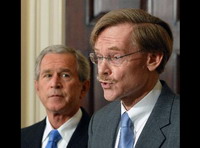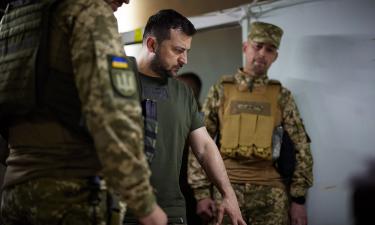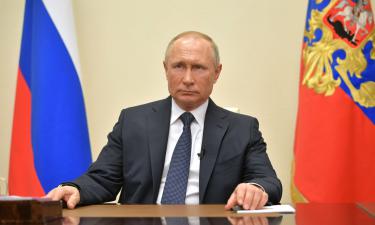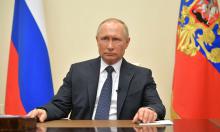World Bank President calls rich nations to increase amounts of money to help poor countries
World Bank President Robert Zoellick appealed to wealthy nations to increase the amounts of money they provide to help the world's poorest countries.

He said bank had set an example by announcing last month it would contribute $3.5 billion (2.5 billion EUR) of its profits from lending to middle income countries and from its private investment division to a trust fund that lends to poor countries, many of them in Africa.
"Now we need the G-8 and other developed countries to translate their words from summit declarations into serious numbers, too," he said in a speech at the National Press Club.
Zoellick is negotiating with member governments, some reluctant for budgetary and other reasons, to raise $39 billion (27.6 billion EUR) for the trust fund, known as the International Development Association. It makes low interest loans and provides grants to the poorest countries. He hopes to complete the talks by the end of the year or early in 2008.
Zoellick, a former deputy secretary of state, took over July 1 from Paul Wolfowitz, who tangled with member governments and the bank's staff. Wolfowitz, a former deputy defense secretary, resigned in May in an ethics scandal.
The speech marked Zoellick's first 100 days in office and set out a strategy for the future course of the 185-member lending organization ahead of its annual meeting Oct. 20-22. Established after World War II, the bank is the world's largest poverty-fighting organization, lending $24 billion (17 billion EUR) a year for projects such as roads, schools and health clinics.
Zoellick said it was the vision of the bank "to contribute to an inclusive and sustainable globalization," a phrase he used several times. He said the objectives should be to overcome poverty, enhance growth with care for the environment and create individual opportunity and hope.
Zoellick said he wants to help countries coming out of conflict as well as play a more active role in coordinating work on international "public goods" such as environmental protection, health and technical assistance for trade.
He acknowledged that bank lending to middle income countries has been shrinking as countries such as China, Brazil and India have access to the billions that flow through international capital markets.
Zoellick said about 70 percent of the world's poor live in China, India and the middle income countries served by the bank.
"These countries have asked us to remain engaged in their search for how best to meet their diverse needs; so (bank lending) should be growing, not contracting," he said.
Zoellick said it would be ironic for the bank to withdraw from working with middle income countries "at a time that governments are recognizing the need to integrate more effectively in diplomacy and political-security organizations."
He said the World Bank; its sister organization, the International Monetary Fund; U.N. agencies; and other global institutions have been buffeted and battered and need to combine deliberations with effective results.
"They must overcome internal weaknesses and build on their strengths," he said. "Together we must show that multilateralism can work much more effectively, not just in conference halls and communiques but in villages and teeming cities for those most in need."
Subscribe to Pravda.Ru Telegram channel, Facebook, RSS!




